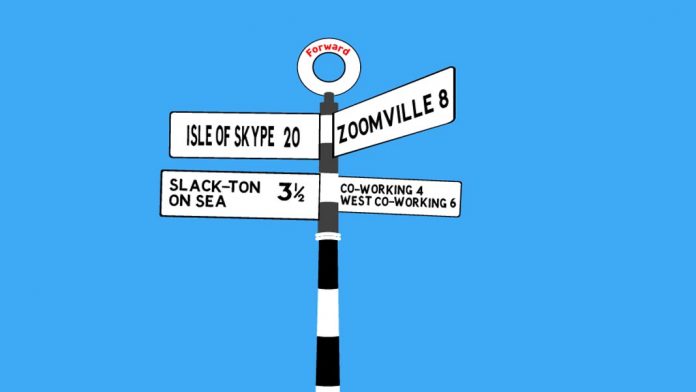The pandemic showed that sudden and drastic changes to traditional ways of working can be made without the reduction in productivity many pre-COVID 19 feared.
This has dramatically challenged many of the preconceptions and received assumptions about the way we work, where we work and what levels of management supervision many of us need. The challenge now is not just simply avoiding reverting back to the old way of doing things but ensuring that the changes we make to how and where we work, lay the groundwork for sustainable, long term solutions.
The potential consequences of a shift towards smaller communities
Now that many people and organisations are freed from the confines of the traditional, office-based 9-5 approach to work, we should expect to see many people fundamentally reconsider where they chose to base themselves and their families. Without the requirements of living within commutable distance of where they work, many may be questioning their expensive, cramped urban living space when they could potentially afford somewhere larger, with a garden and dedicated workspace or room for the same price outside of big cities.
Matching this, the pandemic has facilitated a rebalancing of jobs away from urban centres. It’s estimated that by the end of 2021 300,000 people will have left London due to the shift in working styles (James Reed, Chief Executive of the Reed group, Radio 4 PM programme, 26/07/2021) with many of those leaving the capital moving to smaller, non-urban locations in search of greater flexibility and better value for their money. So much of the recent coverage has been domestic, bigger homes needed because of the desire to work from home.
Like a pebble in a pond, the consequences for many local towns is significant especially where historically there has been more of an exodus from them and not in to them. For many in local government this could represent a significant opportunity for local investment, with the creation of co-working spaces that will offer a tempting prospect to encourage new enterprises to their communities.
Local development as a priority
However, the push to promote local development on the back of this drift to smaller local communities needs to be carefully managed so that the full potential of this influx is fully met, and that there are benefits for all. Without care there is the risk of some degree of friction or alienation between locals and the new arrivals which with careful consideration could be avoided if any investment seeking to attract newcomers avoids creating solutions that are unintentionally exclusive and exclusionary.
These places cannot simply be designed around trying to tempt and facilitate monied out-of-towners without also being inclusive to the needs of the communities that already live there. There is a real opportunity to create solutions that fully recognise and take advantage of the potential for long term economic development with a strong social, economic and environmental benefits to these newly enriched communities.
The importance of inclusive design and function of newly built co-working spaces
Newly built co-working spaces will have little chance to benefit local communities if they are exclusive pseudo ‘city’ offices or aping the ‘bright colours and arcade machines’ aesthetic from silicon valley start-up culture. Where possible they should be part of a truly mixed use development, available not just to wealthy investors and workers, but becoming an intrinsic part of the community as an asset that generates opportunity for local businesses, new enterprises and start-ups and has links with local education, training and community groups. Careful design and operational planning should focus on how facilities can switch function to broaden access and drive up utilisation during the times that the work activities typically dip such as the weekend and weekday evenings.
Fostering meaningful connection between local communities and the influx of investment and residents from the cities will help to not only smooth out any potential conflicts between locals and new arrivals but will also help smaller towns and their governments maximise the potential of the moment and make meaningful contributions to their longer-term aspirations for local economic development.








